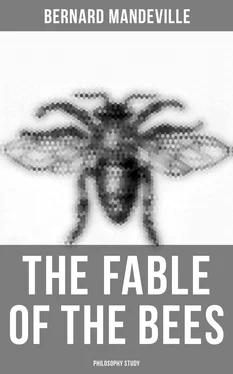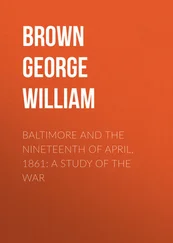A man would be laughed at by most people, who should maintain that too much money could undo a nation: yet this has been the fate of Spain; to this the learned Don Diego Savedra ascribes the ruin of his country. The fruits of the earth in former ages had made Spain so rich, that King Lewis XI. of France being come to the court of Toledo, was astonished at its splendour, and said, that he had never seen any thing to be compared to it, either in Europe or Asia; he that in his travels to the Holy Land had run through every province of them. In the kingdom of Castile alone (if we may believe some writers), there were for the holy war, from all parts of the world got together one hundred thousand foot, ten thousand horse, and sixty thousand carriages for baggage, which Alonso III. maintained at his own charge, and paid every day, as well soldiers as officers and princes, every one according to his rank and dignity: nay, down to the reign of Ferdinand and Isabella (who equipped Columbus), and some time after, Spain was a fertile country, where trade and manufactures flourished, and had a knowing industrious people to boast of. But as soon as that mighty treasure, that was obtained with more hazard and cruelty than the world until then had known, and which to come at, by the Spaniard’s own confession, had cost the lives of twenty millions of Indians; as soon, I say, as that ocean of treasure came rolling in upon them, it took away their senses, and their industry forsook them. The farmer left his plough, the mechanic his tools, the merchant his compting-house, and every body scorning to work, took his pleasure and turned gentleman. They thought they had reason to value themselves above all their neighbours, and now nothing but the conquest of the world would serve them.
The consequence of this has been, that other nations have supplied what their own sloth and pride denied them; and when every body saw, that notwithstanding all the prohibitions the government could make against the exportation of bullion, the Spaniard would part with his money, and bring it you aboard himself at the hazard of his neck, all the world endeavoured to work for Spain. Gold and silver being by this means yearly divided and shared among all the trading countries, have made all things dear, and most nations of Europe industrious, except their owners, who, ever since their mighty acquisitions, sit with their arms across, and wait every year with impatience and anxiety, the arrival of their revenues from abroad, to pay others for what they have spent already: and thus by too much money, the making of colonies and other mismanagements, of which it was the occasion, Spain is, from a fruitful and well-peopled country, with all its mighty titles and possessions, made a barren and empty thoroughfare through which gold and silver pass from America to the rest of the world; and the nation, from a rich, acute, diligent, and laborious, become a slow, idle, proud, and beggarly people: So much for Spain. The next country where money is called the product, is Portugal, and the figure which that kingdom with all its gold makes in Europe, I think is not much to be envied.
The great art then to make a nation happy, and what we call flourishing, consists in giving every body an opportunity of being employed; which to compass, let a government’s first care be to promote as great a variety of manufactures, arts, and handicrafts, as human wit can invent; and the second, to encourage agriculture and fishery in all their branches, that the whole earth may be forced to exert itself as well as man; for as the one is an infallible maxim to draw vast multitudes of people into a nation, so the other is the only method to maintain them.
It is from this policy, and not the trifling regulations of lavishness and frugality (which will ever take their own course, according to the circumstances of the people), that the greatness and felicity of nations must be expected; for let the value of gold and silver either rise or fall, the enjoyment of all societies will ever depend upon the fruits of the earth, and the labour of the people; both which joined together are a more certain, a more inexhaustible, and a more real treasure, than the gold of Brazil, or the silver of Potosi.
Конец ознакомительного фрагмента.
Текст предоставлен ООО «ЛитРес».
Прочитайте эту книгу целиком, купив полную легальную версию на ЛитРес.
Безопасно оплатить книгу можно банковской картой Visa, MasterCard, Maestro, со счета мобильного телефона, с платежного терминала, в салоне МТС или Связной, через PayPal, WebMoney, Яндекс.Деньги, QIWI Кошелек, бонусными картами или другим удобным Вам способом.












